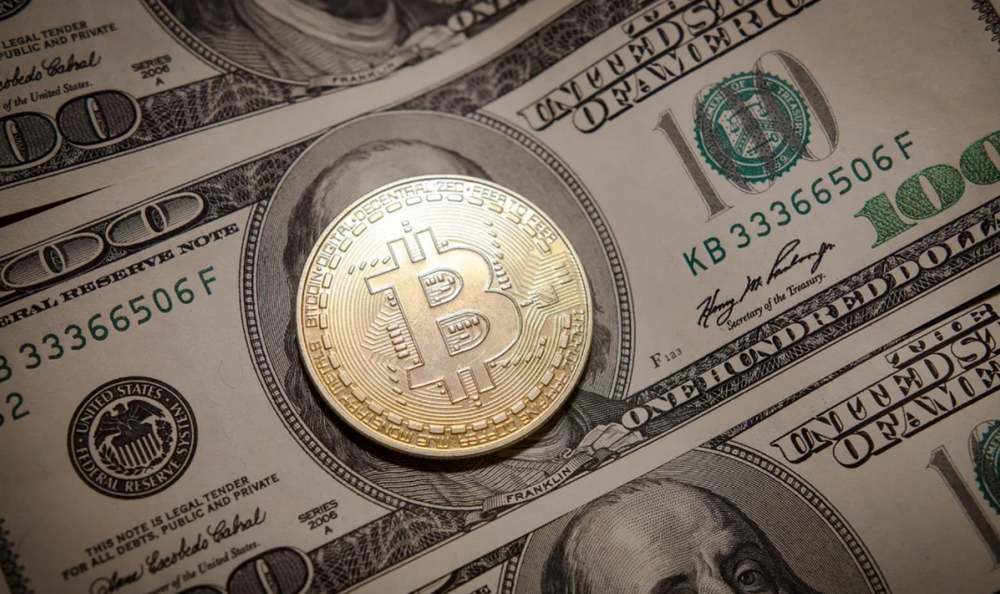XRP briefly wins lawsuit, what important information does the judgment reveal?
XRP lawsuit victory reveals key informationIn December 2020, Ripple was sued by the U.S. SEC. After three years of arduous legal battles, Ripple finally achieved a “temporary” victory.
Tonight, a U.S. federal judge ruled that Ripple’s sale of XRP tokens through exchanges and algorithmic programs does not constitute an investment contract (and does not violate securities laws). However, the court also supported the SEC’s motion that institutional sales of tokens did indeed violate federal securities laws. Upon the news, the price of XRP surged from 0.473 USDT to a high of 0.64 USDT, with a peak increase of over 35% within one hour.

- Bankless Winners and Losers of the XRP Judgment
- Did Temasek suffer its worst performance in 7 years and announce a temporary retreat from cryptocurrency investment, ending in failure?
- Ripple has not won, but it has definitely not lost the next step in the lawsuit
Final Conclusion
In this ruling, neither the SEC nor Ripple can be considered true winners in the truest sense. There is currently no clear consensus on whether XRP is considered a security.
However, this news quickly spread and is seen as a major positive for the cryptocurrency market’s resistance against the SEC. Especially considering the current lawsuits against major cryptocurrency giants such as Coinbase and Binance by the SEC, casting a shadow over the entire cryptocurrency market, Ripple’s victory is particularly inspiring. The crypto community is cheering, saying that XRP’s small step is a big step for crypto.
Odaily Star Daily noted that there are some details worth noting in the court’s ruling.
First, the court supported part of the SEC’s motion, which states that Ripple’s institutional sales of tokens constituted unregistered offers and sales of investment contracts, in violation of Section 5 of the Securities Act. The court made its judgment based on the three aspects of the Howey test:
-
The first step of the Howey test examines whether “money is invested” as part of the relevant transaction; the defendant does not deny that money was paid, so the court found that this element was established.
-
The second step of the Howey test, whether there is a “common enterprise”; the court determined that there is a common enterprise because records indicate the existence of an asset pool, and the fate of institutional buyers is linked to the success of the enterprise as well as the success of other institutional buyers.
-
The third step of the Howey test examines whether the economic reality of Ripple’s institutional sales “creates a reasonable expectation of profits derived from the entrepreneurial or managerial efforts of others.” The court believes that a reasonable investor in the position of an institutional buyer would purchase XRP and expect to profit from Ripple’s efforts.”
Interestingly, the reason the court ruled that Ripple’s sale of XRP tokens through exchanges and programs does not constitute an investment contract is because programmatic sales do not meet the third aspect of the Howey test, which is a reasonable expectation of profits.
The court believes that institutional buyers reasonably expect Ripple to use the funds obtained from sales to improve the Ripple ecosystem and thereby increase the price of XRP. However, programmatic buyers cannot reasonably expect the same result. “Ripple’s programmatic sales are blind transactions, and programmatic buyers do not know whether their money is flowing to XRP or any other sellers of XRP. Since 2017, Ripple’s programmatic sales have accounted for less than 1% of the global XRP trading volume. Therefore, the vast majority of individuals who purchase XRP from digital asset exchanges are not investing in Ripple. Institutional buyers purchase XRP directly from Ripple based on contracts, but the economic reality is that programmatic buyers are the same as buyers on the secondary market (i.e., exchanges), and they do not know who their money is going to.”

(Content about the sale of programs)
Finally, the court ruled that Ripple’s programmatic sale of XRP does not constitute an investment contract and does not violate securities laws. Furthermore, the court also ruled that the use of XRP for investments, bounties, donations, and transfers to executives does not constitute an investment contract and does not violate securities laws.

As the creator of the common law system, the United States’ XRP case provides a precedent for other cryptocurrency projects in the future. In particular, the ruling that the sale of tokens through programs does not violate securities laws also directly proves that opening token trading on exchanges does not violate securities laws. However, it is best not to sell tokens through forms such as ICO/IEO, as this may be considered as meeting the conditions of institutional sales.
We will continue to follow the progress of the Ripple case.
We will continue to update Blocking; if you have any questions or suggestions, please contact us!
Was this article helpful?
93 out of 132 found this helpful
Related articles
- Bloomberg Details the Whole Story of Celsius Fraud Why It Was Sued by Four Major US Regulatory Agencies?
- SEC vs. Ripple Lawsuit Everything You Need to Know
- Layer2 Cross-Chain Bridge Battle Orbiter VS Layerswap, which one is more user-friendly?
- Introducing the Aztec sorter’s selection for the RFP finals: B52 and Fernet
- Is RWA the next growth engine for DeFi?
- $MATIC has been upgraded to $POL
- 1confirmation Partner: Reflections on the Crypto VC Landscape in the Bear Market






